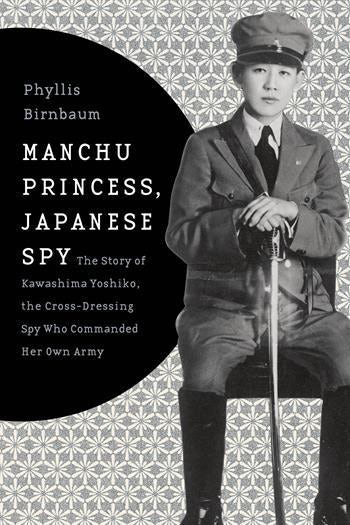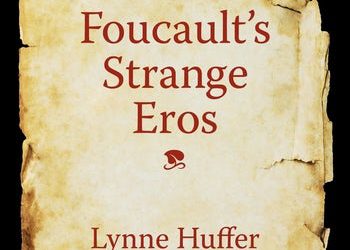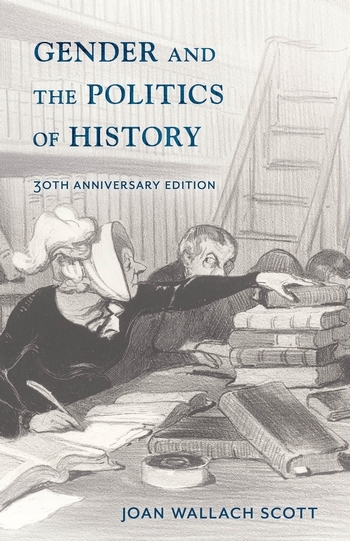Kawashima Yoshiko and Yukawa Haruna: The Connection Between a Manchu Princess and a Japanese Hostage
By Phyllis Birnbaum

In the time that has passed since I finished writing Manchu Princess, Japanese Spy, I’ve been surprised at how many times I’ve thought of Kawashima Yoshiko, the subject of this biography. She is with me on my return trips to Matsumoto, Japan, where she grew up after being sent from her native China to her adoptive Japanese parents in that city. I find myself still mulling over her fate as I visit her grave beside a Matsumoto temple, talk to her grand-niece about how her execution could have been avoided, or walk the lovely streets of that hot springs town where she too used to walk, a celebrated and troubled young woman. Yoshiko grew up to be a master of spinning glamorous, false yarns about her life, and these lies brought her renown and, later, a death sentence in a Chinese court. Amidst all the conspiracy theories and talk of “fake news” that have dominated our media recently, I often remember that Yoshiko was way ahead of her time in knowing how to dominate a news cycle.
But more than anything else, I am haunted by Yoshiko’s connection to Yukawa Haruna, a Japanese hostage of the Islamic State who was not only beheaded in Syria but went to his death convinced that he was a reincarnation of Kawashima Yoshiko. Until I read of Yukawa’s death, I knew nothing about him. Gradually some information about his bizarre and deeply troubled life came my way. I, of course, know much about Kawashima Yoshiko, since I have pored over every bit of information about her that I could find. After hearing of Yukawa’s death, I spent some time brooding about the connection between my biographical subject, who was executed in 1948, and the hostage Yukawa who died such a horrible death in 2015.
While certain details of Yoshiko’s life are disputed, few doubt that she was denied serenity from the very start. Wrenched from everything familiar at an early age, she faced dynastic upheavals and alleged sexual abuse. Born in China and raised in Japan, Yoshiko belonged to neither place at the end of her life.
She also soaked up her adoptive father’s beliefs about how she must devote herself to bringing the Manchus back to their former glory. This goal, which impelled her to storm off to battle, suited her hot, erratic temperament.
As Aisin Gioro Xianyu, she began in Beijing as the fourteenth daughter of a Manchu prince, whose legacy included unfulfilled dreams of a coup d’état and thirty-eight children. After the Manchu Qing dynasty fell in 1912, the prince plotted to bring about its return to power. His supply of children abundant, he thought nothing of giving Xianyu to a Japanese friend who promoted his political causes. Renamed Kawashima Yoshiko, she became a resident of Matsumoto, where she startled her Japanese neighbors by riding horseback—as befit a Manchu princess—to her country school. She also soaked up her adoptive father’s beliefs about how she must devote herself to bringing the Manchus back to their former glory. This goal, which impelled her to storm off to battle, suited her hot, erratic temperament.
As Commander Jin, Yoshiko built a reputation as a spy who liked to dress as a man and became the heroine of a best-selling novel. With her short, handsome haircut and military uniforms, she was credited with unconfirmed exploits in China, among them, riding horseback again, this time as leader of her own army.
If her ideas were sometimes sublime, her colleagues were not. While trying to promote the Manchus, she got involved with promoting the puppet Manchu state the Japanese had set up in Manchuria. That’s one of the reasons why Yoshiko was executed for treason in China after the Japanese defeat in the Second World War.
As Commander Jin, Yoshiko built a reputation as a spy who liked to dress as a man and became the heroine of a best-selling novel.
In contrast to this wild and glamorous history, Yukawa’s life was a grim saga of repeated, unnoticed setbacks. Born in Chiba, Japan, he failed at business, his wife died young of cancer, and he attempted suicide by cutting off his genitals. At last, he decided on a new start, wandering to war zones in the hope of becoming a security expert for Japanese companies. He ended up in the Syrian Desert, at the mercy of the Islamic State, which was responsible for his gruesome death. By then he had taken on the feminine-sounding name “Haruna” and declared that he was the Manchu princess Kawashima Yoshiko reincarnated. To prove his point, he wrote on his blog about events in his life at age forty-one that reminded him of experiences from his former existence: “The first reports of the 9-11 terror attacks were shocking and made me remember the shock of Pearl Harbor.”
It goes without saying that Yukawa must have liked to think of himself as Yoshiko reborn because of her royal pedigree, so different from his humble background. The woebegone Yukawa must have also savored Yoshiko’s exotic status in Japan, for she had stood out wherever she went, a Manchu princess on horseback in the Japanese countryside, with a love of the limelight fueling her notorious reputation as ace dancer and undercover agent.
Then too, there was Yoshiko’s confusion about her sexual identity, starting with her decision to cut off her hair when she was a teenager.
Then too, there was Yoshiko’s confusion about her sexual identity, starting with her decision to cut off her hair when she was a teenager. Some say she did so in reaction to being raped by her adoptive father, and her vow to dress like a man from then on. “People criticize me and say that I am perverted, and maybe they’re right,” she wrote in a Japanese newspaper. “I just can’t behave like an ordinary feminine woman.” Yoshiko’s feelings resonated with Yukawa as he too tried to sort out his own sexual identity. He wrote of his ambiguous appearance, proud that he could pass for either a man or a woman. “I am of a different sex from the Yoshiko of my former life, but I have the power of a woman and also the spirit of a man. I understand the feelings of both men and women. This might be what draws people to me, even in this reincarnation.”
And then, there is the matter of Yukawa’s politics, which started to veer sharply right, as he increasingly expressed sympathy for Japanese ultra-nationalists, insisting, for example, that people all over Asia were grateful for everything Japan had done for them during the Second World War. Perhaps, stretching it, one might see the echoes of his former life as Yoshiko in his longing for a rebirth of mighty Japan, a reflection of her longing for the rebirth of the Qing dynasty.
For Yoshiko, the glamorous, publicity-hungry princess, was also a lonely outsider who had been sent away from her family in China at a young age to promote her father’s political aims.
Yet the hullabaloo of Yoshiko’s existence when contrasted with Yukawa’s stifled, colorless days in Japan makes the karmic connection between them seem impossibly thin—until, that is, Yukawa gives up emphasizing his ties to her flashy deeds and shifts over to simple sorrow. Yoshiko’s celebrity was surely attractive to Yukawa, but he inhabited her best when he focused on the pathos of her situation and his own. For Yoshiko, the glamorous, publicity-hungry princess, was also a lonely outsider who had been sent away from her family in China at a young age to promote her father’s political aims and was then forced to adjust to a wretched household in Japan. “I have a home, but I cannot return,” she wrote, “I shed tears for what I cannot speak of.”
Yukawa, alone and despondent as he wandered the world, well understood her solitude and misery. “I put up a front so people won’t see how lonely and isolated I feel. Oh, I am so very lonely. Where can I go?” Yukawa wrote to prove his kinship with Yoshiko.
And who am I to doubt him?
Read more from Phylllis Birnbaum in this two part Q&A and this excerpt from Manchu Princess, Japanese Spy.








